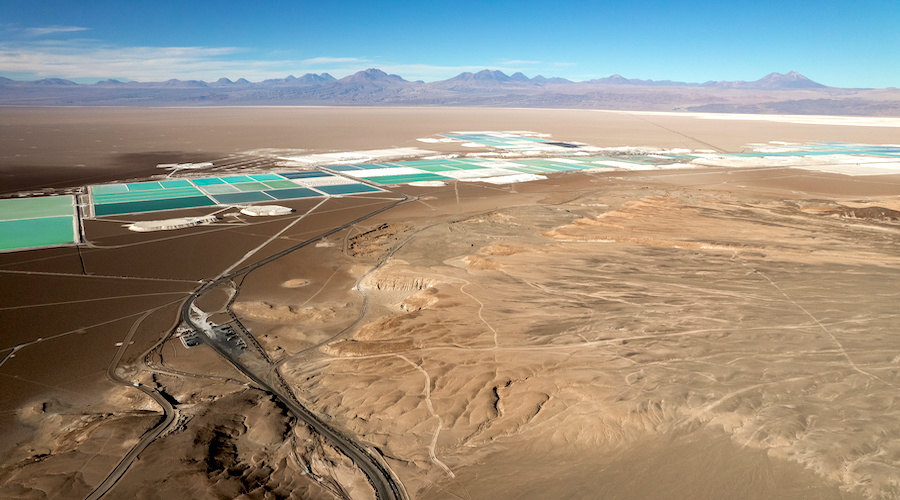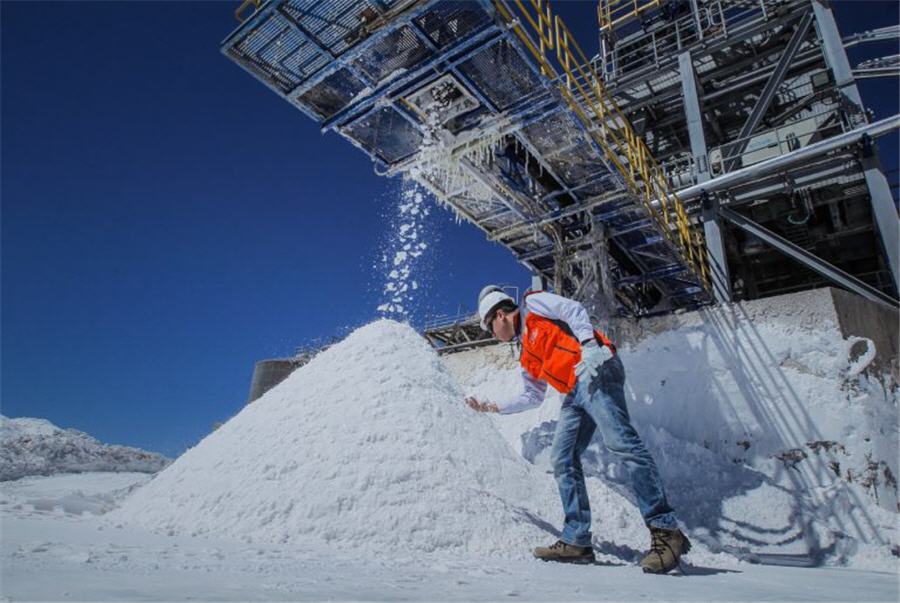Chile’s state miner seeks $1.5 billion from lithium partner

Chile’s National Mining Company (Enami) is looking for a private partner to contribute a $1.5 billion investment and the knowledge to develop its lithium assets.
The state miner Enami will be one of the key players in developing lithium projects in the country under a public-private model recently announced by President Gabriel Boric.
Copper giant Codelco and Enami will be given exploration and extraction contracts in areas where there are now private companies before a national lithium firm is formed.
Enami has the rights to five deposits in the Siete Salares area, in the Atacama desert, with a collective net asset value estimated at $2.5 billion.
Executive vice-president Jaime Pérez de Arce told local media the company’s pockets are not deep enough to move its assets forward and that Enami does not have experience in the market.
Pérez de Arce noted that one of the goals of the national lithium policy is to create a defined pathway for new private participation in the sector.
Not quite nationalization
Strategic lawyer and business advisor at Canada’s McCarthy Tétrault, Shawn Doyle, believes that while Boric’s announcement has been branded as “nationalization” — it is rather a positive development for private capital keen to invest in the battery metal.
“In his speech, Boric indeed invoked expropriations that occurred in Chile’s copper industry in 1971. However, it must be remembered that, as a result of policy paralysis, Chile has been effectively closed to new private investment in lithium for decades” he wrote in a note to clients.
Doyle aded that, as a result of policy status quo, Chile has only two private producers — Albemarle and SQM — holding longstanding leases, while all other would-be players “have been left waiting”, he said.
Albemarle chief executive Kent Masters also sees the new policy as an opportunity to tap into new lithium reserves, beyond the mines it already has.
“I don’t fear about Albermale’s future in Chile,” he told CNBC. “Boric’s government wants to bring more Chilean lithium supply to the market by partnering with companies interested in the business, which know how to operate those mines,” Masters said.
Nicolás Saldías, senior analyst at the Economist Intelligence Unit for Latin America and the Caribbean, said that phrasing Chile’s move as nationalization is “too strong”.
“It’s a quasi-nationalization in that the playing field will now be levelled in favour of the state,” he said.
Others are not so sure. Bernardo Fontaine, Chilean economist and academic, believes that private capital will hesitate before letting the state own the majority of their business, particularly if the same state competes with other operations for buyers.
“It’s an optimistic and enthusiastic bet to ask investors to choose partnering with a state company, via minority stake, risking capital and technology as opposed to simply doing it alone,” Fontaine told MINING.COM.
Boric’s announcements seem more focused on the nationalization of production than on development and the maximization of tax revenue, he said. “Let’s hope the government proves otherwise,” Fontaine added.
Chile is the second largest producer of lithium and holds the world’s third largest reserves of the metal.
Global demand for the battery metal, according to projections of Boric’s government, will quadruple by 2030, reaching 1.8 million tonnes. Available supply by then is expected to sit at 1.5 million tonnes.

The country’s Atacama region, which is also home to vast copper mines, supplies nearly one-quarter of the globe’s lithium.
Last year, the state received more than $5 billion from the sector, equivalent to 1.6% of its GDP, figures from the Autonomous Fiscal Council show.
Exports of lithium carbonate reached almost $7.8 billion, an increase of 777% over 2021, according to the Chilean Central Bank.
It means that lithium carbonate surpassed salmon and fruit in the Chilean export basket.
{{ commodity.name }}
{{ post.title }}
{{ post.date }}




Comments